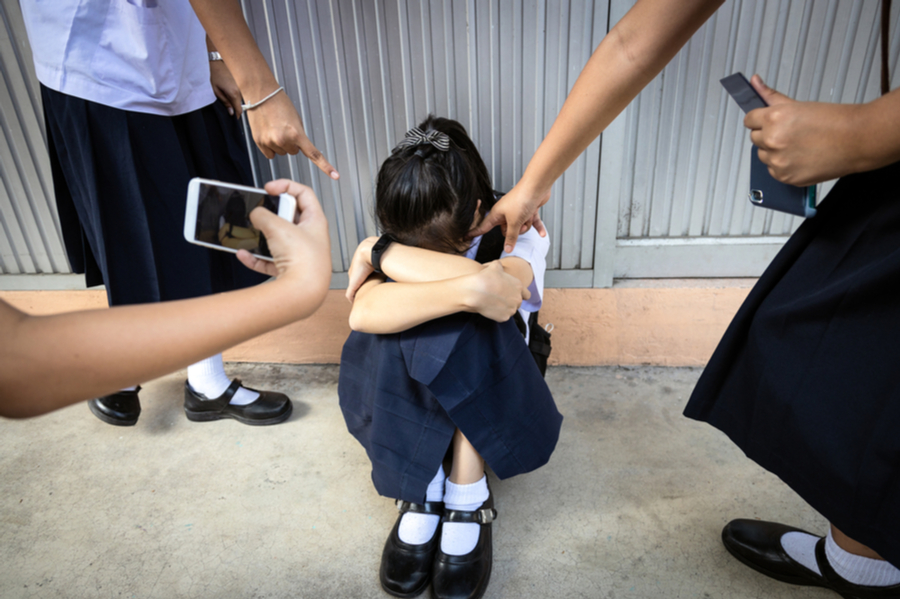“You will always be criticized, mocked, and bullied for your differences, but these are typically what set you unique. The traits that distinguish you from other people, the things you once regarded as your shortcomings, will one day become your greatest strengths.” – Taylor Swift
Bullying is a serious issue affecting many people around the world. It involves repeatedly mistreating someone through physical aggression, verbal abuse, or online harassment. With the rise of social media, this problem has become more pervasive, occurring anywhere and at any time. The effects can be profound, leading to emotional distress, psychological harm, and a diminished quality of life for those affected. Addressing this issue is crucial for creating safer environments and supporting individuals’ well-being, both in schools and online.
The case of Zulfarhan Osman Zulkarnain illustrates the extreme consequences of harassment. Zulfarhan, a cadet at the National Defence University of Malaysia, was brutally tortured and murdered by six fellow cadets in 2017. They used a hot iron to brand him all over his body, including sensitive areas. This horrific act of violence resulted in Zulfarhan’s death and recently led to the six cadets being sentenced to death. The severity of this case highlights the need for justice and the importance of taking a serious stance against such misconduct.
Similarly, Rajeswary Appahu, a 30-year-old TikTok influencer known as Esha, faced severe cyber harassment. She took her own life in July 2023 after enduring online threats and abuse. Her family is frustrated with the police investigation, feeling it was inadequate. This case underscores the need for effective responses to cyber harassment and the importance of thorough investigations. Both Zulfarhan’s and Rajeswary’s cases show the urgent need for robust measures to tackle harassment and ensure safety and respect for all individuals.
Factors that Cause Bullying
Bullying often arises from power imbalances where bullies seek to dominate others, sometimes masking their own insecurities. Differences in status, such as those between seniors and juniors, can exacerbate bullying behaviors. Teachers’ responses play a crucial role; non-assertive teachers who ignore or inadequately address bullying contribute to its persistence. Family dynamics are also significant. Rigid or emotionally cold family environments, permissive parenting, and lack of community involvement can foster bullying tendencies. Additionally, peer influence and exposure to violent media can lead adolescents to engage in or tolerate bullying behaviors. Media, particularly television, plays a significant role in shaping behavior. Exposure to violent content can lead to aggressive behaviors in adolescents, who may imitate what they see. The normalization of violence in media can desensitize viewers to aggression and contribute to the perpetuation of bullying behaviors.
Solutions to Bullying
Alternative solutions to dealing with child bullying in schools include building awareness and understanding among all stakeholders—students, teachers, principals, staff, and parents. This involves implementing anti-bullying programs to ensure everyone comprehends what bullying is and its effects. Schools should create rules and codes of ethics to foster a safe environment and establish systems for reporting and managing bullying cases. Adopting child-friendly education practices with positive discipline and a strong commitment from teachers and parents is crucial. Training should be provided for these methods, and children should be empowered to protect themselves through anti-bullying training and active participation in campaigns. Additionally, governments and educational authorities need to integrate bullying prevention into teacher training and school programs, sometimes involving law enforcement. For immediate help, support hotlines are available, such as TALIAN HEAL 15555 Helpline.
Initiatives by the government
The Malaysian government has actively addressed bullying by implementing various initiatives and policies aimed at creating safer environments for students. The Ministry of Education has introduced anti-bullying programs and guidelines for schools, focusing on preventive measures and supportive interventions. These initiatives include educational campaigns to raise awareness, the establishment of reporting systems for victims, and mandatory training for teachers and staff to identify and address bullying effectively. Additionally, there are efforts to foster a culture of respect and empathy among students to curb bullying behaviors and promote a more inclusive school environment.
To fight cybercrime, Malaysia has launched several important initiatives. In 2019, the Ministry of Communications and Multimedia (MCMM) ran a big campaign to teach people about online scams. They used TV and radio, made posters, and handed out pamphlets to help everyone understand these online threats. Another program, CyberSafe, aims to help everyone stay safe online by providing tips and information through its website. In 2021, the #TakNakScam campaign was introduced to teach people how to spot and report online fraud. This campaign encouraged everyone to “Identify, Check, and Report” suspicious activities. The government has also put in place several laws to protect people online. For example, the Computer Crimes Act 1997 helps deal with unauthorized access to computers. The Communication and Multimedia Act 1998 oversees online services, and the Digital Signature Act 1997 ensures the safety of electronic signatures. Finally, the Telemedicine Act 1997 supports remote medical consultations, making healthcare more accessible.
Conclusion
In conclusion, bullying remains a critical issue with significant impacts on individuals and communities. Effective solutions involve understanding the root causes and implementing comprehensive strategies, including awareness campaigns and supportive school policies. The Malaysian government’s efforts in launching anti-bullying initiatives and addressing cybercrime through education and legislation highlight a commitment to creating safer environments. Additionally, with many young children having access to phones and gadgets, it’s crucial for them to be cautious about their online interactions. Parents also play a vital role in overseeing their children’s online activities to ensure their safety. By continuing these efforts and fostering vigilance, we can work towards reducing bullying and building a more inclusive and supportive society for everyone.
Log in or Sign Up at www.pandai.org
Download Pandai App now via Google Play or App Store.
Follow us on our Social Media Now!
Facebook: @pandaiofficial
Instagram:@pandaiofficial
Twitter: @pandaiofficial
TikTok: @pandaiofficial

